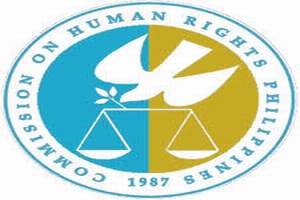
Article Links: https://pco.gov.ph/news-releases/
The Philippines will be a reliable partner and will be ready to deliver, President Ferdinand R. Marcos Jr. told the Philippines’ foreign trade partners and the international community as he rallied for support for the successful implementation of the newly approved Philippine Export Development Plan (PEDP).
“I once again call on the private sector and the entire export community to continue to invest their faith and energies in the industry. We also send a message of goodwill to our foreign trade partners and the international community: the Philippines will be a reliable partner. We will deliver,” the President said on Thursday during the International Trade Forum organized by the Department of Trade and Industry (DTI) at the Shangri-La The Fort, Bonifacio Global City (BGC) in Taguig City.
Describing the export industry as an “economic lynchpin,” Marcos said with the PEDP implementation and favorable developments, there is a reason to be optimistic about the bright future of the local export industry.
“But as with any other plan, everything will come down to its effective and efficient implementation. So, together, with a whole-of-nation approach, let us once again declare our slogan: ‘Let’s make it happen’,” Marcos told the forum.
In carrying out the export plan, the President promised to reinvigorate the Export Development Council (EDC), which can serve well as a proactive forum and effective command center for the efficient implementation of the Plan, the monitoring of milestone accomplishments, and the systematic pursuit of the desired multi-sectoral approach.
Resounding in the PEDP, Marcos said, is the necessity for heightened government support, which calls for a host of vital government interventions, such as infrastructure, greater ease of doing business, promotion and marketing, financing, even legislative initiatives, among others.
PEDP’s effective implementation could only be achieved through a whole-of-government, whole-of-nation approach, a holistic approach that calls for strategic coordination, partnerships and linkages with the private sector and government agencies, supported by the international community, the President pointed out.
The chief executive also highlighted the importance of the Regional Comprehensive Economic Partnership (RCEP) Agreement, which came into force this month, noting that the free trade pact is another significant milestone in the nation’s export agenda.
With RCEP’s 15-country market coverage, the Philippines could expand further its market reach for its exported goods, deepening not only the country’s economic integration, but also demonstrating its global competitiveness.
The implementation of the RCEP Agreement in the Philippines is expected to widen market opportunities, foster more cross-border regional value-chains, increase attractiveness to foreign direct investments (FDIs), and promote easier participation of micro, small, and medium enterprises (MSMEs) in regional trade.
It is seen to lower business costs and open opportunities for Filipino service providers and improve market access for products of key export interest.
The Philippines will have lower preferential rates on key export products such as fresh fruits including papaya and durian, preserved pineapples, coffee, as well as cacao and chocolate, among others.
The country will also improve market access for products of key export interest, have a wider coverage area for cumulation of raw materials, development of liberal Product-Specific Rules, and reduce transaction costs.
In a study conducted by the Virginia Polytechnic Institute, the implementation of the RCEP Agreement in the Philippines is expected to contribute 1.9 percent real GDP growth; improve the country’s trade balance by as much as USD128.2 million; and, lower poverty incidence by 3.6 percent by 2031.
“Hence, we must continue to forge these vital agreements and preferential systems, and also maintain our good standing in, and seek renewal of, existing ones, including those with the EU and the US,” the President said.
As envisioned under the PEDP, the President said achieving more than double the nation’s current level of exports is a realistic target.
This can transform the Philippine export industry into a significant economic engine that will generate over a million high-quality and sustainable jobs, boost MSMEs, and establish the Philippines as an “agile export powerhouse” by 2028.
Marcos said there is still great potential in the trade sector with $49-billion worth of revenues that remain untapped and unlocked by the industry. (PND)
------------------------------------------------




























































0 comments:
Post a Comment